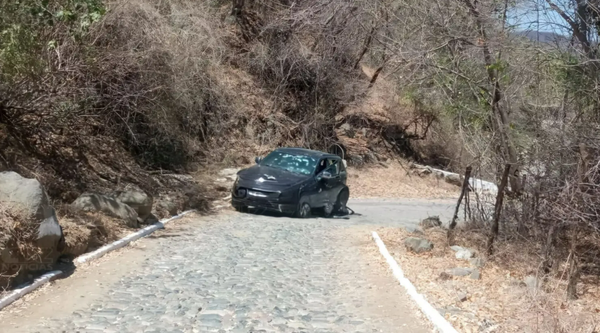
Ever wondered what’s the difference between misinformation and disinformation? The federal government is keen to answer that question as part of its attempt to regulate the thing we all kind of know is going to destroy democracy: the marketplace of lies we call the internet.
Call it the Trump effect, or whatever, but we are drowning in a sea of online deceit and it’s obvious that traditional media don’t have the solution. Enter the government, and the Communications Legislation Amendment (Combatting Misinformation and Disinformation) Bill.
Notwithstanding that this was originally the Coalition’s idea, naturally the opposition is now furiously opposing the bill. No doubt whatever Dutton is saying about it (“an attack on free speech” for starters) is an ironic demonstration of the case for introducing such a law.
The reaction has been furious – over 3,000 submissions, with groups as disparate as the Australian Catholic Bishops Conference and the Human Rights Commission expressing opposition or concern. The Australian Christian Lobby says that the bill will “cancel Christian posts online”, which is as impossible as it sounds.
The fuss is heavily focused on the bill’s definition of “misinformation” and “disinformation”: broadly, this is false, misleading or deceptive content that is reasonably likely to cause or contribute to serious harm.
As you can immediately see, the devil is going to be in the detail of these defining words. “Harm” has six categories: hatred against a group in society on the basis of the same attributes that underpin discrimination law (ethnicity, race, gender, sexual orientation, age, religion or disability); disruption of public order or society; harm to the integrity of democratic processes or government institutions; harm to the health of Australians; harm to the environment; or economic or financial harm to Australians or the economy.
Yikes. If this law was attempting to establish a regime for prohibiting or censoring online speech by reference to those criteria, then yep I’d be on the barricades shouting “Orwellian dystopia!” alongside the bishops.
However, I am not in a flat free-speech panic about this. That’s not to say the bill isn’t flawed — it is — but it isn’t about to become a crime to post on your Facebook page about that time when Jesus turned loaves into fishes or barefoot water-skied without a tow.
The legal framework the bill would establish is modest. Everyone agrees that the regulator of broadcast and online services — the Australian Communications and Media Authority (ACMA) — is largely ineffective because it is toothless. The new scheme would give it a bit of bite, by virtue of a graduated approach to online regulation.
First, ACMA would be given new powers to require online providers to keep records of misinformation and report to the regulator. Second, it would encourage and facilitate voluntary self-regulation codes, and third, it would empower ACMA to step in and create its own enforceable standards if it considers that the industry is not stepping up to the plate.
All of these measures focus on replacing the current Wild West unregulated scenario, which is one of the reasons why the internet is a sewer, with a new regime that nudges the gatekeepers – the platform providers – in the direction of respecting their social licence and actively moderating the flow of harmful content. It’s analogous to why defamation law was first developed in the analogue age, to force the publishers of printed mass-media to learn some social responsibility for what they were putting out into the world.
In that sense, it is a brave experiment, like standing in front of a runaway train holding up a sign that reads “Please slow down before someone gets hurt”. No wonder the government is copping abuse from all sides; we’ve all enjoyed the freedom of the digital world just as much as we’ve hated it.
The churches say that they’d no longer be able to publish their teachings on topics such as euthanasia, abortion or homosexuality, for example, because these could be readily said to cause “serious harm”. In one sense, well um yes, actually they do. But, of course, making it illegal to express a genuinely held religious belief would be counter-productive and wrong, outside of the narrowest realm of explicit hate-speech.
The fear is misplaced (or misrepresented). The draft bill doesn’t outlaw anything at all. It also sets up a very high set of hurdles for any content to leap over before it could meet the definition of misinformation. It has to do serious harm, which is to be assessed by reference to a long list of factors including the severity of its potential impacts, its purpose, its authors, and so on. It also has to be false, misleading or deceptive, something that quite obviously nobody can ever say about an article of religious faith, since faith operates in a realm where objective truth and falsity have no relevance.
Most importantly, the bill does not do what most of its critics are alleging: establish ACMA as a governmental arbiter and censor of what is and is not acceptable content on the internet. It is nonsense to suggest that ACMA will be out there making value judgments about what people are publishing in relation to climate change or gender fluidity, and then imposing sanctions on those whose opinions fall on the “wrong” side of its determinations. The bill creates nothing like that.
In practice, the bill wouldn’t shift the dial more than marginally. However, what it signals, more than what it does, is important. In that regard, I agree with the Law Council’s warning for caution. Going broad, as this bill does, is most likely to scare the horses unnecessarily while resulting in no real change.
By the way, the difference between misinformation and disinformation is that the latter involves intentional deception of the audience. Perhaps that’s a pointer towards a potentially narrower, and more effective, theatre of regulatory operation. Nobody ever said blessed be the liars.







